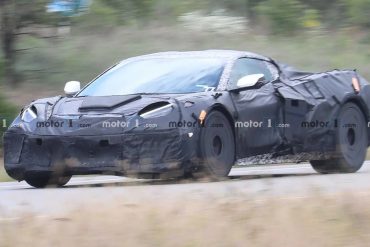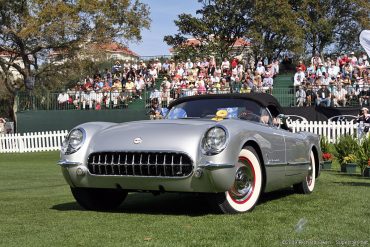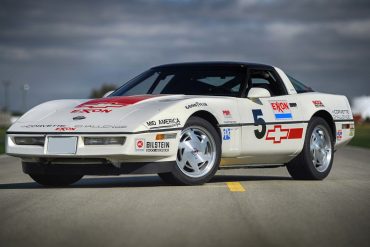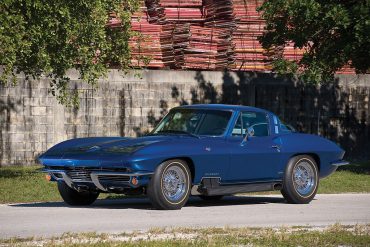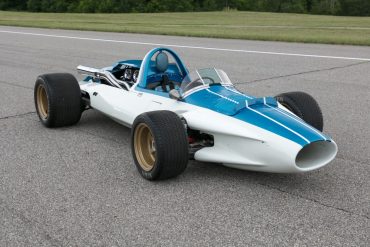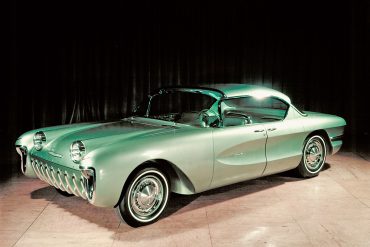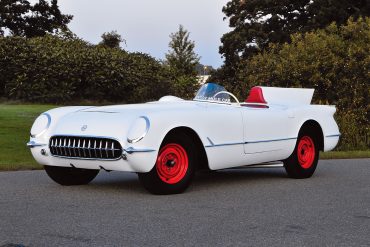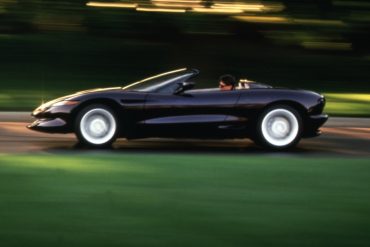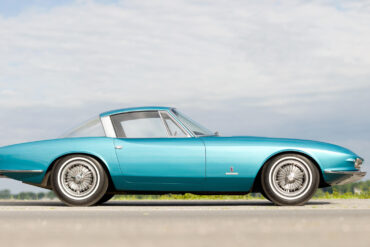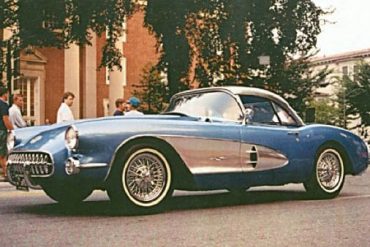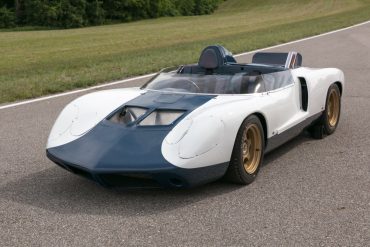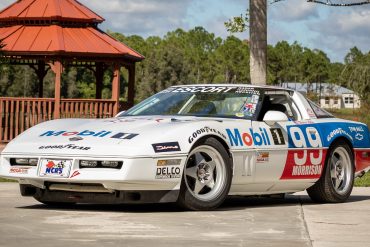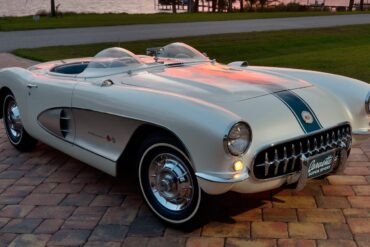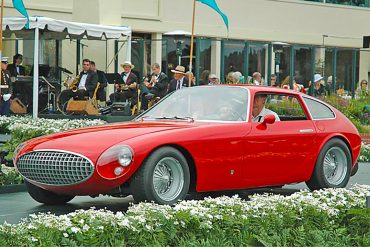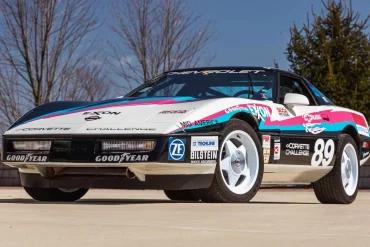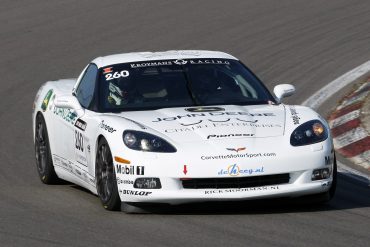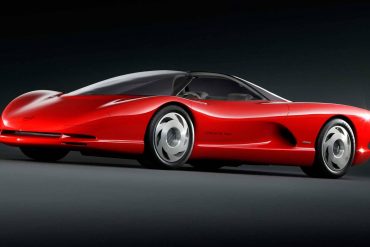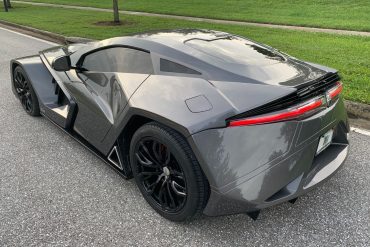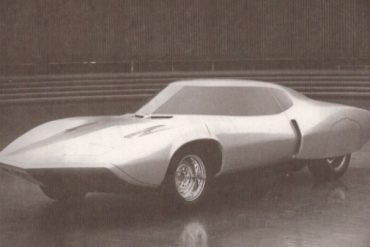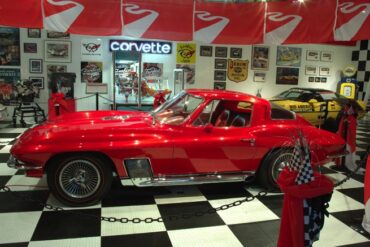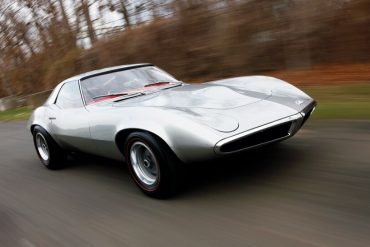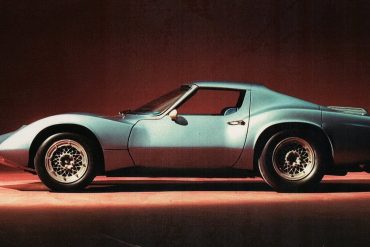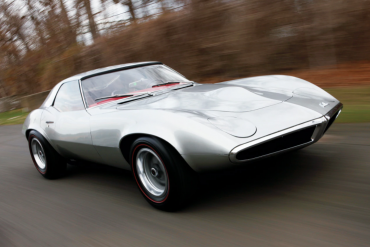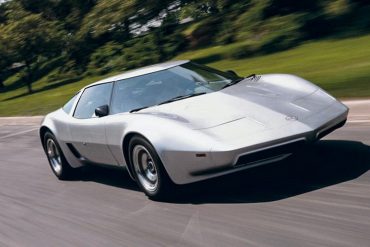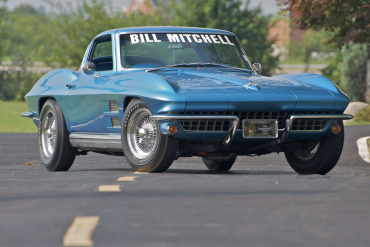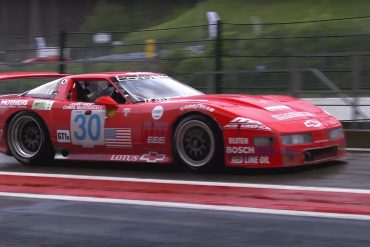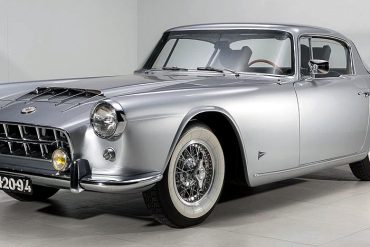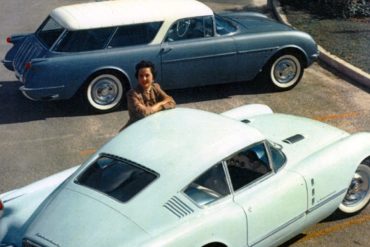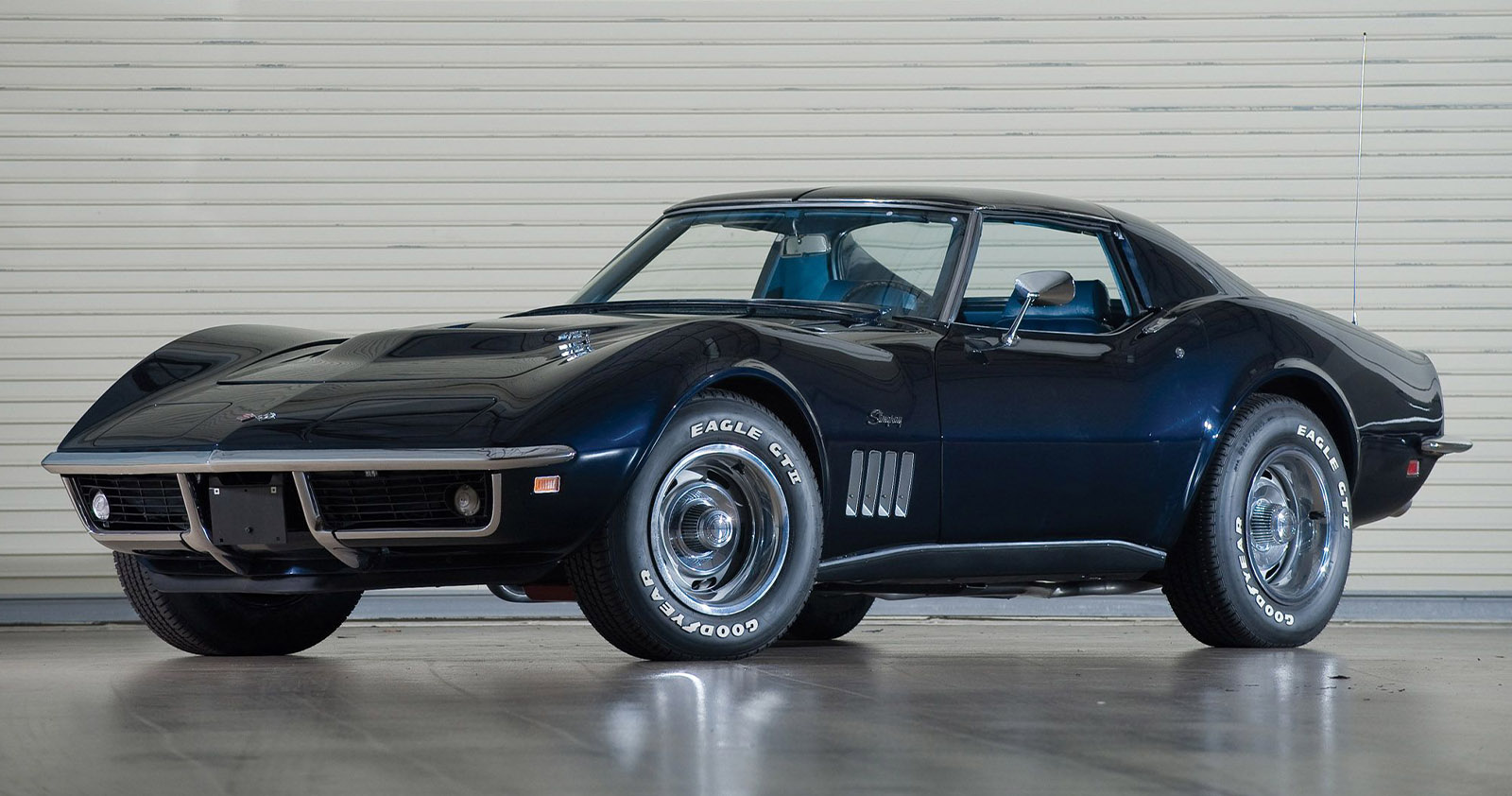As reported by Motor1, right on the heels of the announcement that the Corvette C8 Hybrid is coming as early...
The 1954 Corvette was outfitted with several unique design features. These were the results of two design exercises that included both interior and exterior upgrades. Outwardly, this styling concept is distinguished by its sharkfin headlights which effectively split each headlight down the center.
The 1988 Corvette Challenge Series was created by John Powell of Powell Motorsports. Chevrolet built fifty-six identical Corvettes for the first year of the Corvette Challenge in 1988. Each was equipped exactly the same, with all standard equipment, the 245hp Cross-Fire fuel injection engine, Doug Nash 4+3 transmission, Z51 Handling Suspension package.
This one-off Corvette was custom-built by GM Styling under famed design chief Bill Mitchell, especially for the famed industrialist and Indianapolis racing sponsor Ozzie Olson of Olsonite fame. Among its special modifications including custom floor grates that were a trademark feature of the GM Styling specials
The “CERV-1” (Chevrolet Engineering Research Vehicle) was developed as a research tool for that company’s continuous investigations into automotive ride and handling phenomena under the most realistic conditions. The car was built at the Chevrolet Engineering Center at Warren, Michigan in a special project headed by Mr. Zora Arkus-Duntov, Chevrolet Staff Engineer.
GM’s 1950s Motorama-mobiles were mostly pretty out-there, with flamboyant fins, rocket-inspired skegs and cockpits, and other flights of wild imagination. Frankly, many of them were a bit absurd and even childish. But there were a few that were somewhat down to earth, even rather brilliant, like this 1955 Chevrolet Biscayne.
Built for outright top speed, this prototype Corvette was built by Zora Duntov. He successfully piloted the car to a two-way average speed of 150 mph in January of 1956 at Daytona. Later two more similar cars were built for the 1956 Daytona Speed Weeks in February. After initial resistance from Engineering, Duntov’s cam was delivered to the Proving Ground.
The 1992 Stingray III / California Stingray Concept was developed by John Schinella (and team) at GM's Advance Concept Center in Los Angeles. The 1992 concept is a world away from the C4. But the dominant motifs of a smooth rounded Corvette did come to production on the C5. This prototype looks distinctly upmarket, the rear shares a shocking similarity to the Jaguar XK8, without a flat surface in sight.
The Corvette Rondine concept was built by Pinanfarina and introduced at the 1963 Paris Motor Show. The car started life as a 1963 split-window Corvette, which is all the more unusual because Chevrolet introduced the split-window coupe at the same time that Pinanfarina was introducing a custom-built Corvette based on that very same platform.
Could This be the Hybrid? Over the holiday weekend, GM was apparently out testing a new version of the C8...
If you were a senior GM employee, one of the perks was being able to have your own custom built for you. Bill Mitchell was known for it, but this SR-2 Lookalike was built for GM president Harlow Curtis, who was president of GM during the period that the SR-2 were developed. The lookalike was built by GM’s styling staff and presented to him.
The CERV II was entirely Zora’s car. The CERV II was conceived early in 1962 and developed over the next year, after the GS program was squashed. The car was built under Zora's direction between 1963-'64. Zora had it in mind to develop a separate line of racing Corvettes but the idea got terminated by management.
The 1990 Escort World Challenge Series Corvette R9G's were only available for one week. Only race teams were allowed to order this very rare Corvette through dealerships. The 1990 Corvette had its own code like the '88 & 89's did, it was dubbed the "R9G" Corvette. The cars were produced for the express purpose of racing in the SCCA World Challenge Series. In 1990, dealers could order cars destined for the World Challenge race series.
FOR SALE: The Original 1957 Corvette Super Sport Show Car! In the past, we’ve showcased some rare “for sale” Corvettes...
This one-off 1961 Vignale Corvette was built for the 1961 Salon de l'Automobile in Paris, France. It was based on a 1960 Corvette chassis and built by Italian coachmaker Carrozzeria Vignale. The body was designed by Gordon Kelly.
The 1989 Corvette Challenge cars had a unique option code from the factory, it was "R7F". The documentation from GM clearly indicates that the cars were produced for the express purpose of racing in the SCCA Corvette Challenge Series. There is also documentation that identifies by serial number, all Corvettes produced with these option codes. Therefore, it is relatively easy to validate the authenticity of any Challenge car.
In late 2007 Corvette Europe approached the FIA seeking approval to race a C6 Coupe in the GT4 category. After much study the FIA approved their request. Kroymans shipped a new 2008 C6 Z51 six-speed coupe to Callaway Competition in Leingarten, Germany. In less than six weeks the Callaway team stripped the new car of all non-essential parts including carpet and standard seats.
Mid-Engine Prototypes: The 1985 Corvette Indy Concept, The 1986 Corvette Indy and the 1990 CERV III Since the introduction of...
The Vetter Slash, a Corvette-Based Concept Car Although every generation of Corvette has its own, dedicated group of devout enthusiasts/owners,...
To clothe the 1965 mid engine Corvette chassis, the designers at Styling Staff proposed a much more radical shape than Zora Arkus Duntov, the main force behind a mid engine Corvette, had in mind. It would have provided rear vision solely through a periscope. The design had bold air intakes at the rear and a split windscreen that lifted up with the gullwing doors.
For the 1964 New York World's Fair, Bill Mitchell and his Styling team at the Tech Center customized a production Sting Ray under Shop Order #10361 with a variety of items that transformed the already impressive Corvette into a showpiece like no other. An opening was cut into the center of the car's hood exposing a polished fuel injection manifold with the Corvette crossed flags in its very center.
When first introduced to the world by Pontiac in 1964, the car showed so much promise that Chevrolet (allegedly) put a swift end to its development to prevent its production from hindering the sales of the Corvette. Afterall, with the introduction of the 1963 Split-Window Corvette, Chevy was finally seeing an increase in sales, something lacking for most of the first-gen.
The XP-819, developed in the mid-1960s, was an engineering exercise to test a rear engine concept for the Corvette. The body was designed by Larry Shinoda. You can see styling cues in XP-819 that later appeared in Shinoda's famed "Sting Ray" design. A GM marine engine powers the car so the two-speed transaxle would operate properly. The entire chassis, suspension, and steering are custom made components unique to this car.
With the passing of successive generations, a nearly endless number of vehicle designs and concepts have been pitched to execs...
The Chevrolet Aerovette (originally designated Experimental Project XP-882) was developed in the late 1960's under the watchful eyes and mind of Zora Arkus-Duntov. Unlike the XP-819, which ultimately proved to have too much rear weight bias, Duntov focused on developing the Aerovette as a mid-engine platform.
The most innovative of the Bob McDorman Collection’s GM Styling Corvettes is this Blue Metallic one-off enjoyed by GM Styling legend Bill Mitchell. The unique paint is accented with a custom made die cast front grille and matching dual front fender vents. A willing 327 CI engine gave this gem all the performance the boss could have asked for...
Built in 1995 by Doug Rippie Motorsports, this ZR-1 Corvette is the only such example to compete in the 24...
Sure we are only four years into the eighth-generation Corvette, but that doesn’t stop enthusiasts from talking and dreaming about...
Chevrolet Corvette Coupé, 1957, by Ghia Aigle. Designed by Giovanni Michellotti a one-off built on a ‘54 Corvette chassis by Carozzeria Ghia in Switzerland. The Ghia Corvette was powered by a Blue Flame 6 in-line engine with a 4-speed manual gearbox
The Corvair concept car was initially presented to the public at the 1954 Motorama at the Waldorf Astoria hotel in Manhattan. The Corvair presented at the Waldorf was not the same car that traveled to other Motorama shows throughout the year.


